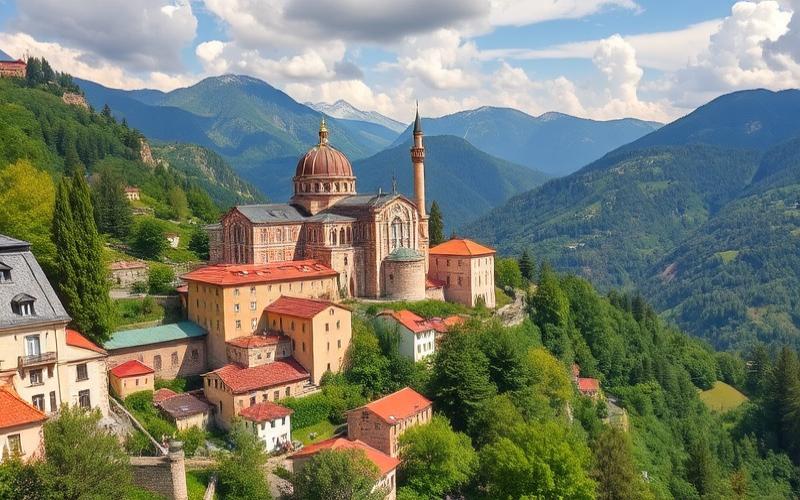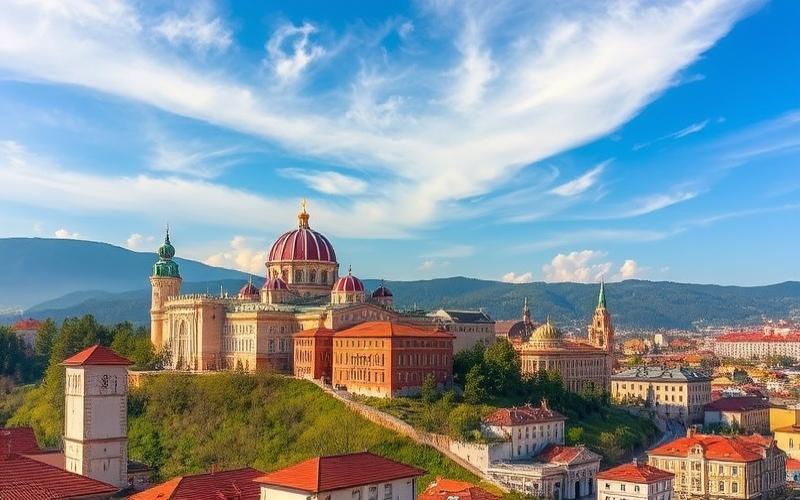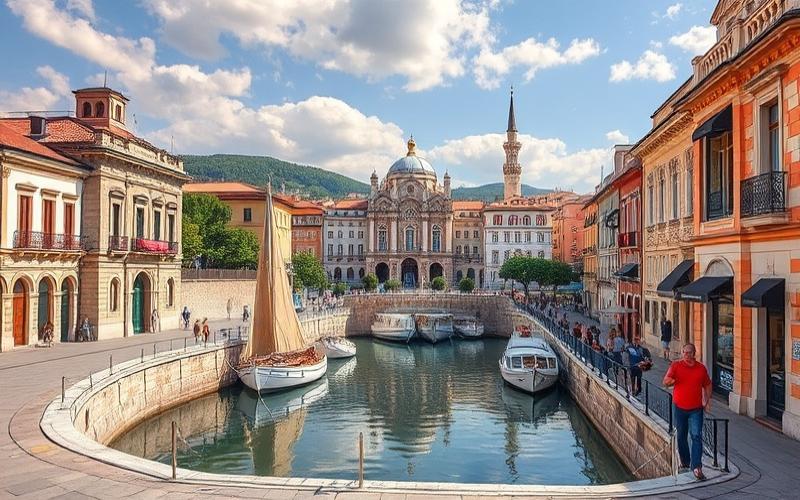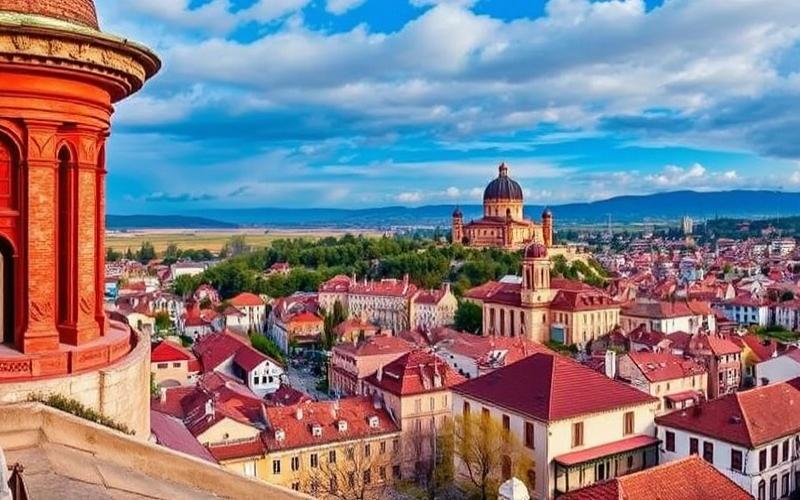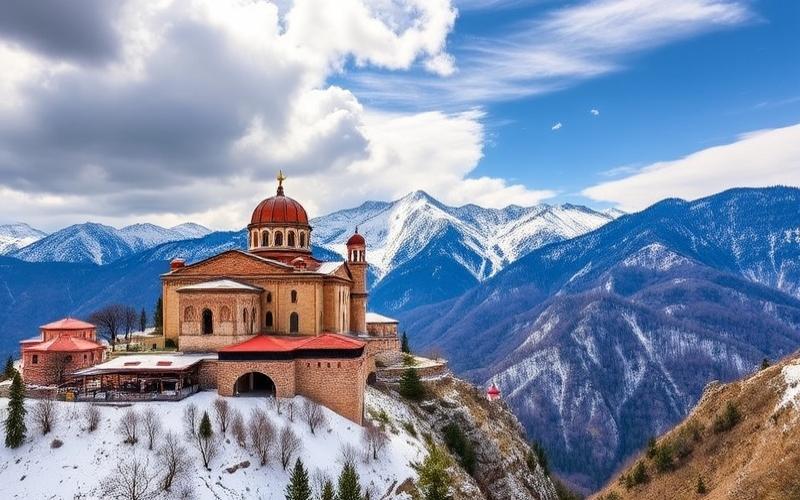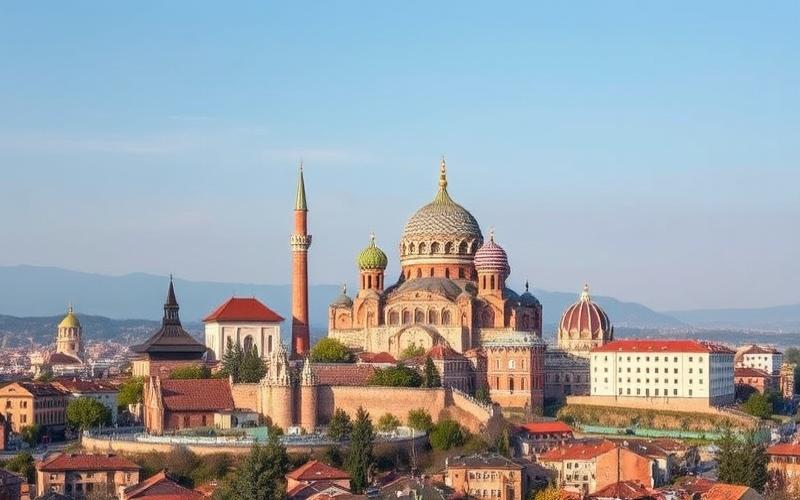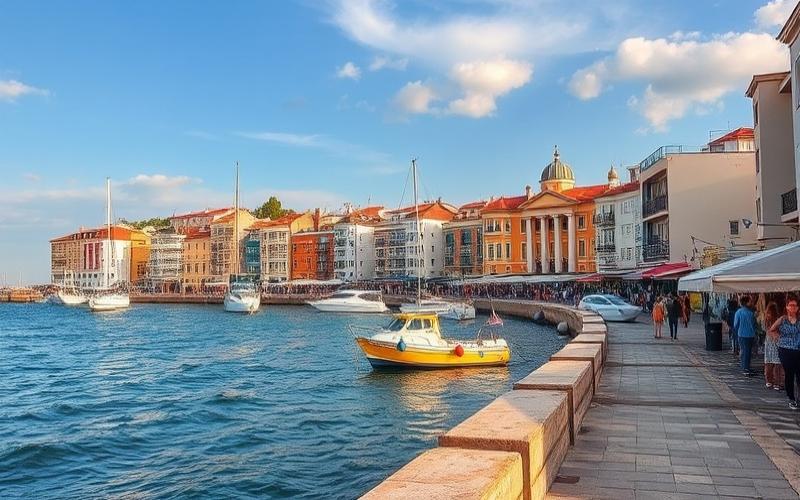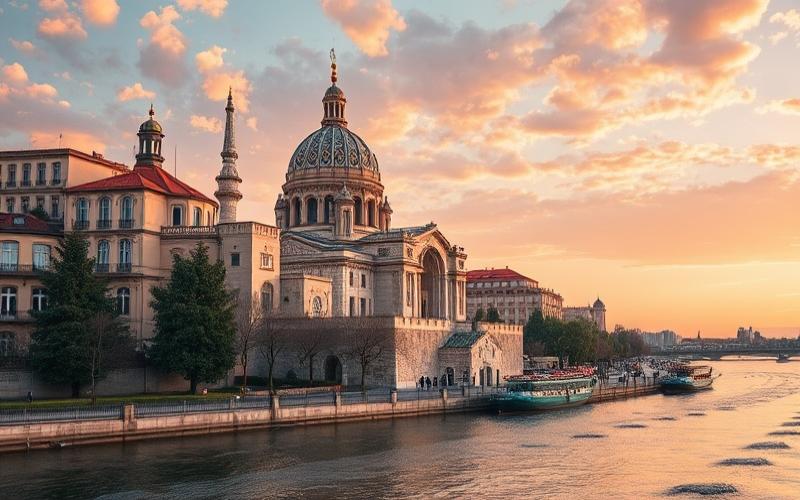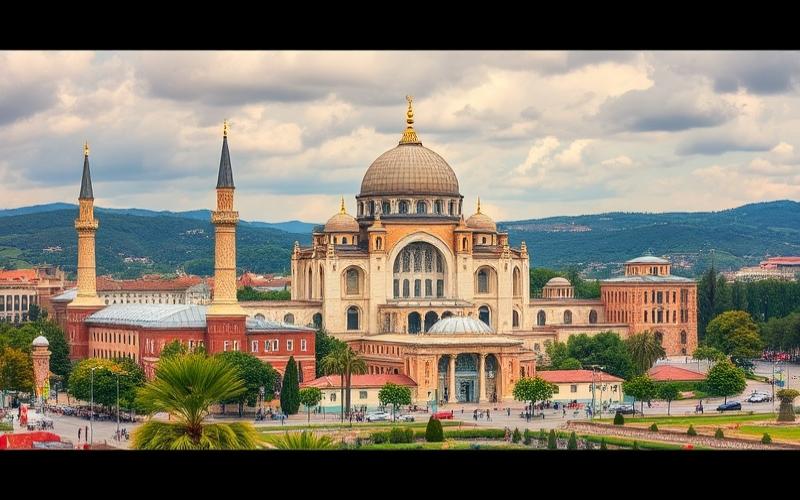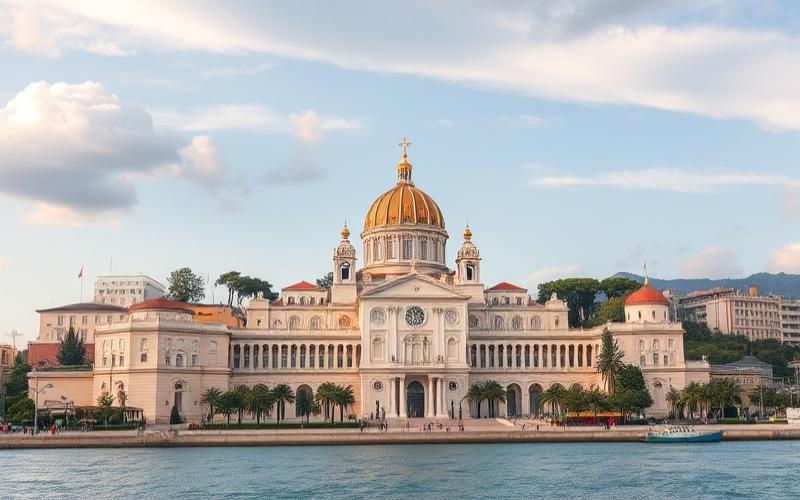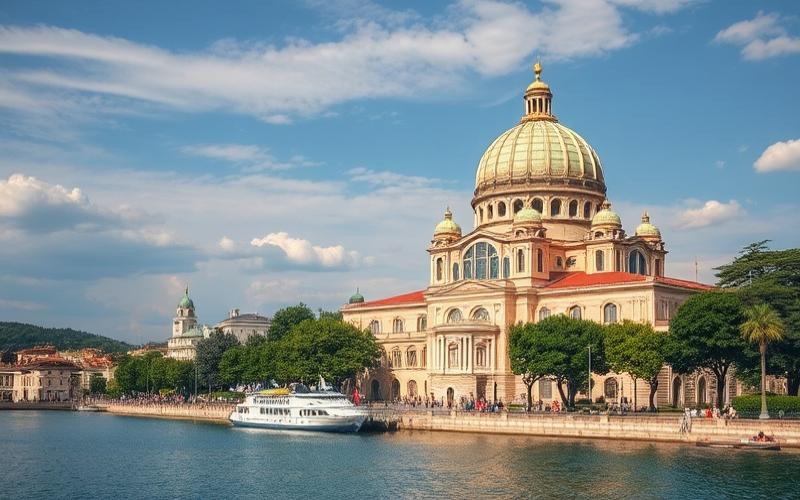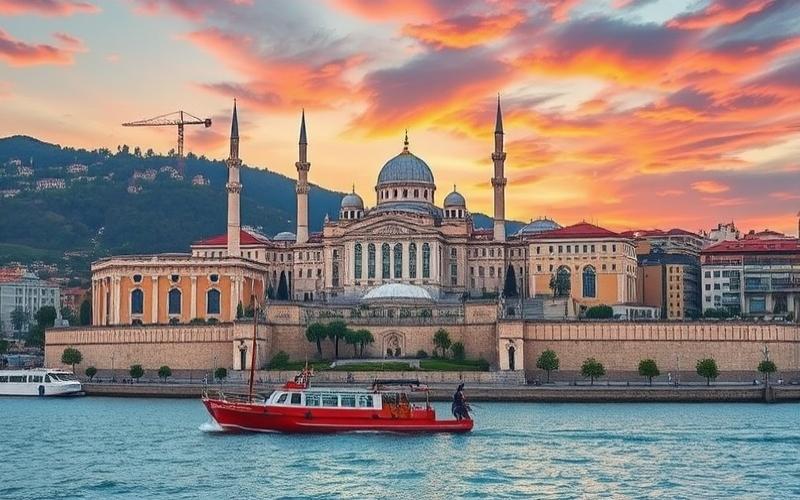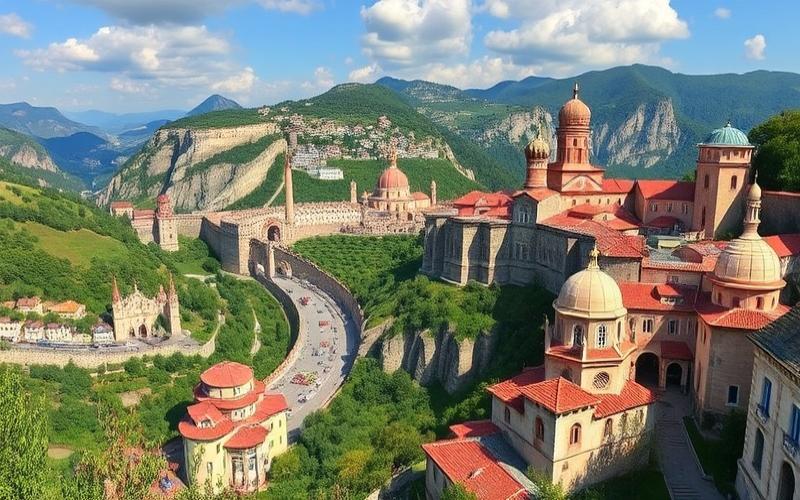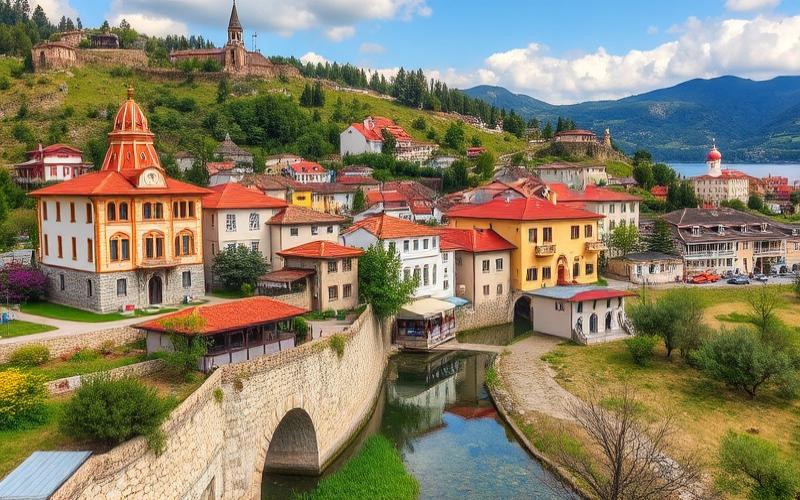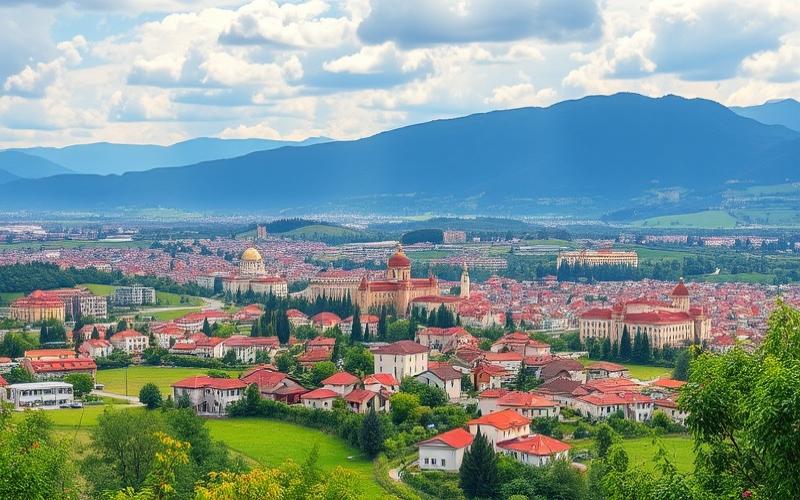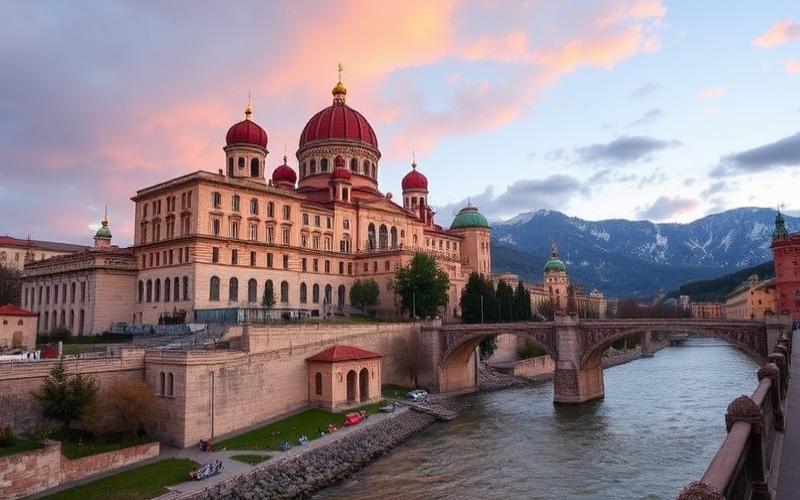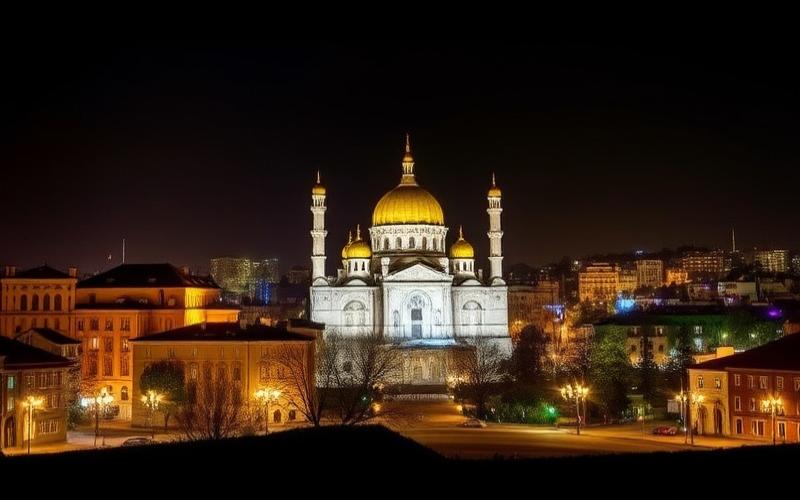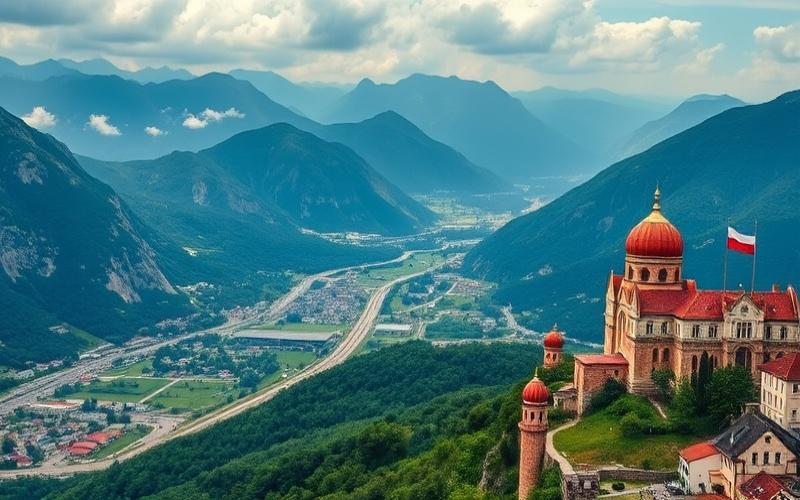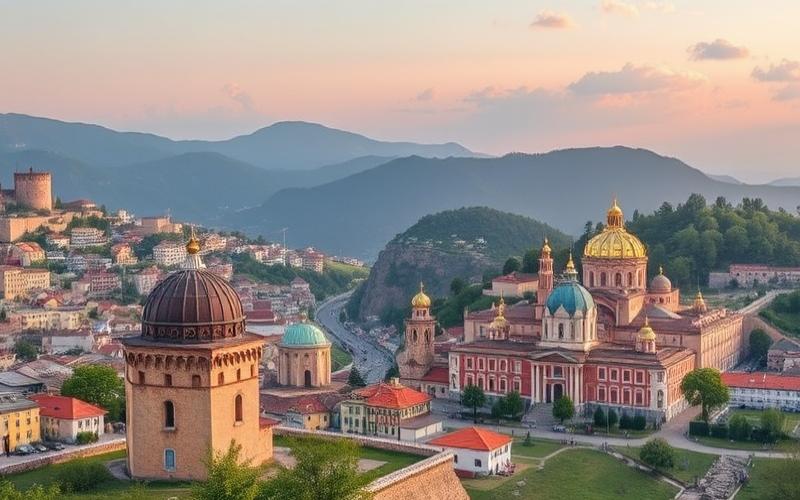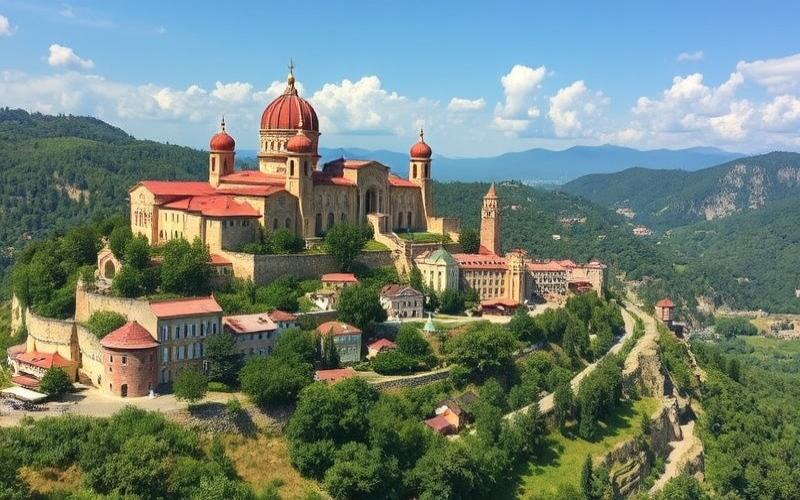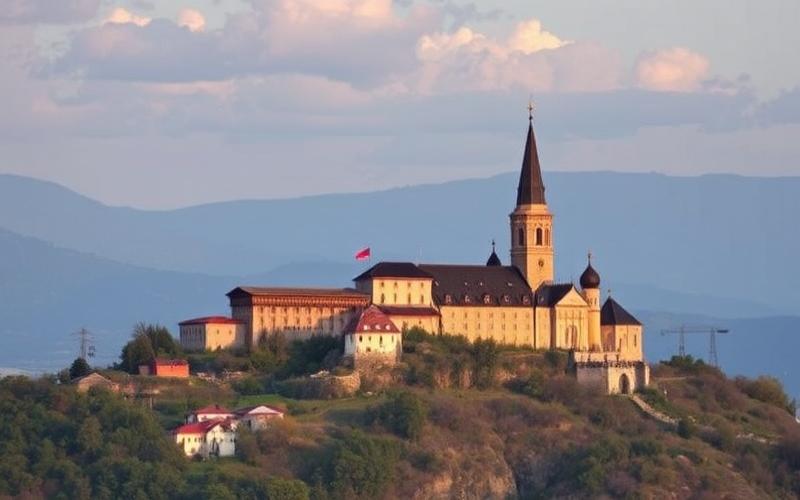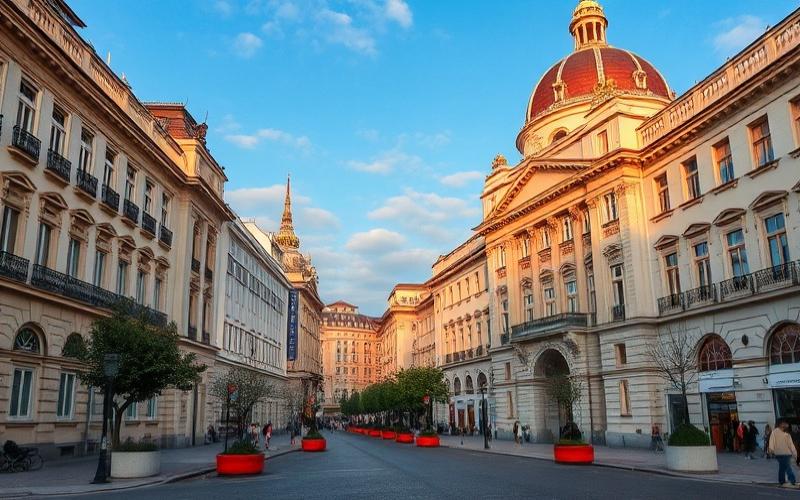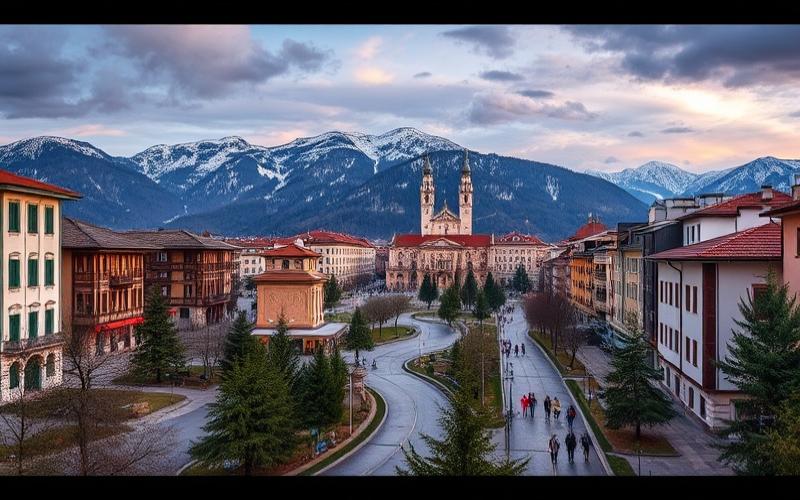
 Published on and written by Cyril Jarnias
Published on and written by Cyril Jarnias
As Bulgaria, a country on the shores of the Black Sea, observes growing interest in its real estate sector, the impact of the war in Ukraine is redefining market dynamics and opportunities. This conflict, by shifting the geopolitical and economic axes of the region, introduces significant changes in investment flows and buyer demands, creating a polarization between the appeal for secondary residences, mainly along the coast, and more resilient properties inland. At a time when regional security and economic prospects are becoming decisive criteria for investors, understanding how the Bulgarian real estate landscape is adapting to these new realities offers crucial insight for navigating this rapidly changing market.
The Geopolitical Consequences of the Ukrainian Conflict on the Bulgarian Real Estate Market
The Ukrainian Conflict and Its Repercussions on Bulgaria
The conflict in Ukraine has profoundly altered geopolitical and economic dynamics in Bulgaria. This Balkan country, traditionally close to Russia, found itself torn between its historical ties with Moscow and its membership in the European Union and NATO. This situation has generated internal political tensions, with a marked divide between pro-Western and pro-Russian forces.
The Bulgarian government, despite internal divisions, has largely adopted a supportive stance towards Ukraine, notably sending military and humanitarian aid. This orientation has caused friction with Russia, which cut off its gas deliveries to Bulgaria in 2022, forcing the country to quickly diversify its energy supply sources.
Impact on the Bulgarian Real Estate Market
The influx of Ukrainian refugees and Russians fleeing mobilization has had a significant impact on the Bulgarian real estate market, particularly in urban and coastal areas. It is estimated that over 160,000 Ukrainians have requested temporary protection in Bulgaria since the conflict began. Although many continued their journey to other European destinations, a significant portion remained, creating increased demand for short- and medium-term housing.
In major cities like Sofia and Varna, as well as in Black Sea resorts, there has been an observed increase in rental demand, pushing prices upward. Russian investors, seeking to secure their assets outside Russia, have also contributed to boosting the luxury real estate market in these regions.
Attitude of International Investors
The Ukrainian conflict initially raised concerns among international investors regarding the stability of the region. However, the pro-Western position adopted by the Bulgarian government and the prospects of deeper EU integration have reassured many economic actors.
European and American investors have shown growing interest in the Bulgarian real estate market, perceived as a more stable and cheaper alternative than other Eastern European markets. The commercial real estate and office sectors have particularly benefited from this renewed interest, especially in Sofia where several large-scale development projects have been launched.
Implications on Prices and Construction
The combination of the influx of new residents and increased investor interest has led to a general rise in real estate prices in major Bulgarian cities. In Sofia, apartment prices increased by nearly 10% in 2022, a trend that continued in 2023.
The construction sector experienced a resurgence in activity, stimulated by growing demand. However, supply difficulties for construction materials and rising energy costs, indirect consequences of the conflict, have posed challenges for real estate developers.
Evolution of Real Estate Policies
Faced with these new dynamics, the Bulgarian government had to adapt its real estate policies. Measures were taken to facilitate access to housing for Ukrainian refugees, notably through temporary social housing programs.
The authorities also strengthened controls on foreign real estate investments, particularly those from Russia, to comply with European sanctions. This increased vigilance has led to more thorough scrutiny of real estate transactions involving Russian buyers.
Impact on Consumer Confidence
Geopolitical tensions have had a mixed effect on consumer confidence in the Bulgarian real estate market. On one hand, regional uncertainty has prompted some local buyers to postpone their acquisition plans. On the other hand, the perception of Bulgaria as a relatively stable haven in the region has attracted international investors and foreign buyers seeking to diversify their portfolios.
The growing demand for real estate from Ukrainians and Russians has created a positive dynamic, reinforcing confidence in the resilience of the Bulgarian market amid regional turbulence.
Good to Know:
The Ukrainian conflict has reshaped economic and geopolitical dynamics in Bulgaria, thereby stimulating the real estate market, particularly due to the influx of Ukrainian and Russian refugees increasing demand in urban areas like Sofia and Varna. This influx has led to price increases in certain segments, prompting international investors to consider Bulgaria as a stable refuge. Construction has boomed to meet this increased demand but still faces challenges related to material costs and regulation. Geopolitical tensions also influence consumer confidence, making buyers and investors more cautious and leading to adjustments in investment strategies. Furthermore, Bulgarian real estate policies are gradually adapting to this new context, seeking to balance attracting foreign investments with supporting local needs, which could lead to new political and economic structures.
The Influx of Ukrainian Refugees and the Housing Market in Sofia
The Influx of Ukrainian Refugees in Sofia
Since the beginning of the conflict in Ukraine, Sofia has experienced a significant increase in the number of Ukrainian refugees. As of December 31, 2022, nearly one million people had entered Bulgaria after fleeing Ukraine, with about 150,000 registered as beneficiaries of temporary protection. Among them, nearly 50,000 remained in the country, with a significant proportion in Sofia.
Impact on the Housing Market
This massive influx has had significant repercussions on Sofia’s real estate market. The increased demand for housing has led to rising prices, both for rentals and purchases. Property owners and real estate agencies have reported an increase in demand for short-term rentals, which has contributed to driving up rents in some neighborhoods of the capital.
Challenges for Refugee Housing
Bulgarian authorities faced considerable challenges in housing this large number of refugees. Existing reception centers, like the one in Ovcha Kupel in Sofia, quickly reached maximum capacity. The Ovcha Kupel center, for example, has a theoretical capacity of 860 places but had to accommodate many more people at the peak of the crisis.
Government Measures
Faced with this situation, the Bulgarian government implemented several measures:
- Creation of new temporary housing centers
- Collaboration with hotels to provide emergency accommodation
- Implementation of a subsidy system for property owners hosting refugees
- Simplification of administrative procedures for obtaining temporary protection
The government allocated 7.5 euros per day for housing a refugee in a hotel, although this amount does not cover meals.
Local Community Response
The local community in Sofia showed great solidarity towards Ukrainian refugees. Many residents offered free rooms or apartments to temporarily host Ukrainian families. Volunteer groups organized to provide food, clothing, and other essential items.
NGO Initiatives
Non-governmental organizations played a crucial role in managing this crisis. The Bulgarian Red Cross, for example, mobilized thousands of volunteers to provide practical aid to refugees, including distributing food packages to hotels and reception centers. Other NGOs set up integration assistance programs, offering Bulgarian language courses and job search assistance.
Long-Term Perspectives
As the situation stabilizes, Bulgarian authorities and civil society organizations are working on more sustainable solutions for housing and integrating Ukrainian refugees. This includes efforts to facilitate access to the labor market and education system, as well as initiatives to promote social cohesion between refugees and the local population.
Good to Know:
Since the beginning of the conflict in Ukraine, Sofia has seen an influx of approximately 150,000 Ukrainian refugees, which has exerted significant pressure on the local real estate market. Consequently, rental prices have increased by 15% and housing availability has considerably decreased. To address these challenges, the Bulgarian government has implemented support measures to subsidize temporary housing for refugees, while collaborating with local NGOs to maximize the use of available infrastructure. For example, some organizations are converting vacant commercial spaces into temporary housing, while the local community organizes to offer free or reduced-cost accommodations.
The Impact of the Ukrainian Crisis on Real Estate Investments in Bulgaria
The Influx of Foreign Investors in Bulgaria
The Ukrainian crisis has had a significant impact on real estate investments in Bulgaria. Since the beginning of the conflict, there has been a notable increase in foreign investment flows in the Bulgarian real estate sector. This trend is partly explained by the search for safe havens by Ukrainian and Russian investors, who see Bulgaria as a stable and attractive destination for their capital.
Recent data shows that foreign direct investments in Bulgaria reached 4.2 billion euros in 2023, a significant increase compared to previous years. The real estate sector represents a significant portion of these investments, with approximately 19.6% of the total concentrated in the manufacturing industry, which includes construction and real estate development.
Evolution of Real Estate Demand
Real estate demand in Bulgaria has experienced strong growth, particularly from Ukrainian and Russian investors. The latter are attracted by:
- The relative political and economic stability of Bulgaria
- Real estate prices still attractive compared to other European countries
- Geographical and cultural proximity
This increase in demand has led to a rise in prices in major Bulgarian cities. In Sofia, the capital, average housing prices increased by 102.30% between 2015 and the third quarter of 2022. In other major cities like Plovdiv and Varna, increases were 81.55% and 61.51% respectively over the same period.
Redirection of Investment Policies
Faced with this influx of foreign investors, the Bulgarian government has taken measures to facilitate and encourage real estate investments. Among these initiatives are:
- Simplification of building permit procedures
- Improved protection for minority investors
- Reduction of costs related to registering foreign company representative offices
These measures have contributed to strengthening Bulgaria’s attractiveness for foreign investors, including in the context of the Ukrainian crisis.
Economic Impact and European Comparison
The economic impact of these real estate investments is significant for Bulgaria. The construction sector experienced growth of 3.4% in 2023, stimulated by these new capital flows. Moreover, the Bulgarian real estate market shows performance superior to many other European countries.
For example, while real estate prices in Bulgaria increased by 74.43% between 2015 and the third quarter of 2022, other European countries experienced smaller increases or even decreases over the same period. This situation places Bulgaria in an advantageous position to attract more foreign investment in the real estate sector.
Future Prospects
Despite uncertainties related to the continuation of the conflict in Ukraine, prospects for the Bulgarian real estate market remain positive. Experts predict a continuation of price growth, albeit at a more moderate pace. Bulgaria’s planned entry into the eurozone in 2025 should also strengthen the country’s appeal for foreign investors, by offering increased monetary stability.
In conclusion, the Ukrainian crisis has had a significant but overall positive impact on real estate investments in Bulgaria. The country has managed to leverage its geographical position and relative stability to attract foreign capital, thereby stimulating its real estate market and its economy as a whole.
Good to Know:
Since the beginning of the Ukrainian crisis, the Bulgarian real estate market has experienced an increase in demand, especially in major cities like Sofia and Varna, with a price rise of about 8% in 2023. This increase is partly due to the heightened flow of Ukrainian investors seeking fallback solutions amid uncertainty at home, as well as renewed interest from Russian investors. In parallel, Bulgarian legislation has adjusted to create a more welcoming environment, facilitating the entry of foreign capital with tax incentives and simplified purchase procedures. Compared to other Central European countries like Hungary or Poland, Bulgaria shows particular resilience with stable growth in real estate investments, despite regional economic disruptions. Local initiatives aim to position Bulgaria as a safe and attractive alternative for investors fleeing geopolitical and monetary instability in neighboring countries.
Disclaimer: The information provided on this website is for informational purposes only and does not constitute financial, legal, or professional advice. We encourage you to consult qualified experts before making any investment, real estate, or expatriation decisions. Although we strive to maintain up-to-date and accurate information, we do not guarantee the completeness, accuracy, or timeliness of the proposed content. As investment and expatriation involve risks, we disclaim any liability for potential losses or damages arising from the use of this site. Your use of this site confirms your acceptance of these terms and your understanding of the associated risks.


